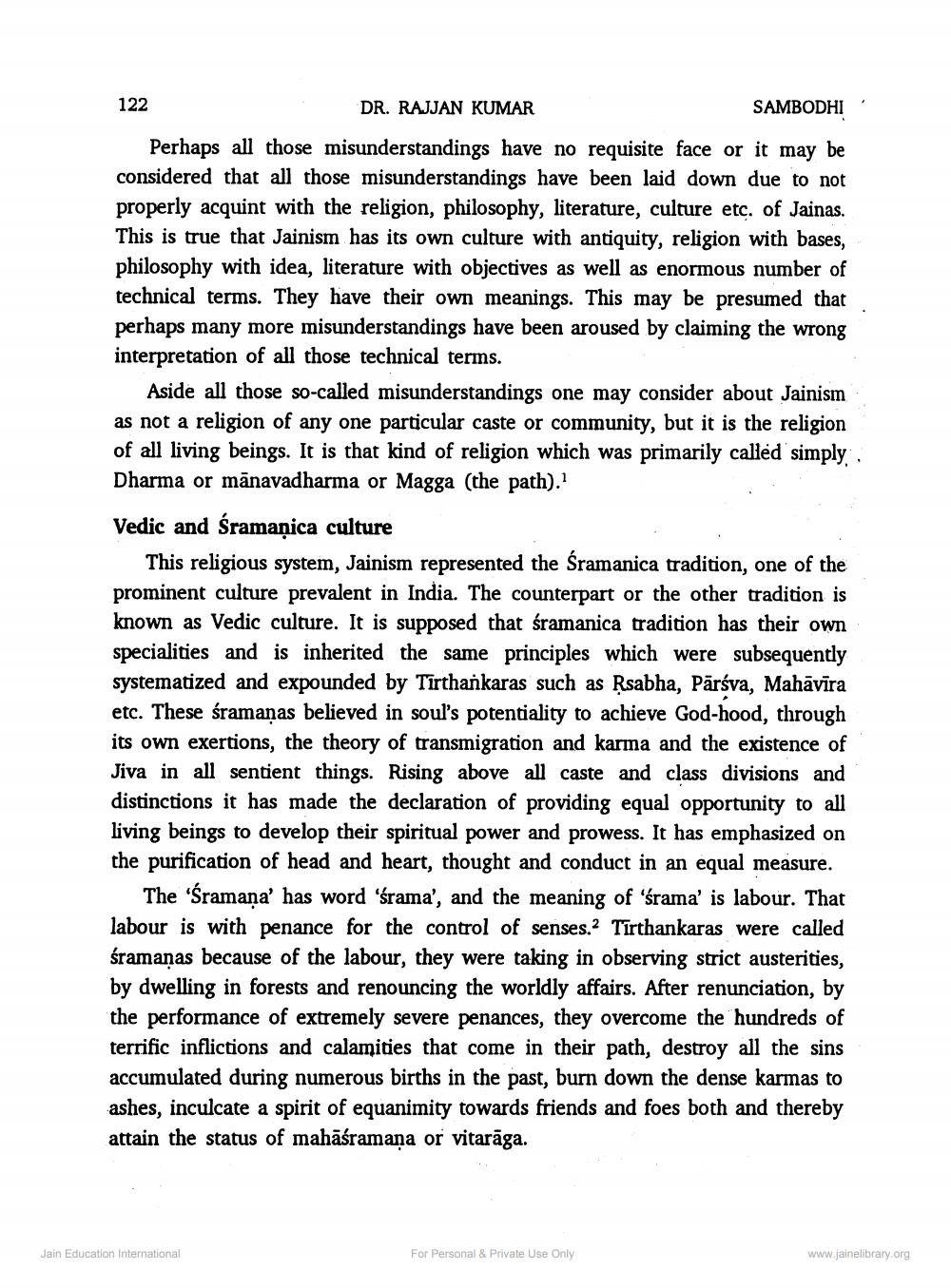________________
122
DR. RAJJAN KUMAR
SAMBODHI
Perhaps all those misunderstandings have no requisite face or it may be considered that all those misunderstandings have been laid down due to not properly acquint with the religion, philosophy, literature, culture etc. of Jainas. This is true that Jainism has its own culture with antiquity, religion with bases, philosophy with idea, literature with objectives as well as enormous number of technical terms. They have their own meanings. This may be presumed that perhaps many more misunderstandings have been aroused by claiming the wrong interpretation of all those technical terms.
Aside all those so-called misunderstandings one may consider about Jainism as not a religion of any one particular caste or community, but it is the religion of all living beings. It is that kind of religion which was primarily called simply. Dharma or mānavadharma or Magga (the path).
Vedic and śramaņica culture
This religious system, Jainism represented the Sramanica tradition, one of the prominent culture prevalent in India. The counterpart or the other tradition is known as Vedic culture. It is supposed that śramanica tradition has their own specialities and is inherited the same principles which were subsequently systematized and expounded by Tirthankaras such as Rsabha, Pārsva, Mahāvīra etc. These śramaņas believed in soul's potentiality to achieve God-hood, through its own exertions, the theory of transmigration and karma and the existence of Jiva in all sentient things. Rising above all caste and class divisions and distinctions it has made the declaration of providing equal opportunity to all living beings to develop their spiritual power and prowess. It has emphasized on the purification of head and heart, thought and conduct in an equal measure.
The 'Sramana' has word 'śrama', and the meaning of 'śrama' is labour. That labour is with penance for the control of senses. Tirthankaras were called śramaņas because of the labour, they were taking in observing strict austerities, by dwelling in forests and renouncing the worldly affairs. After renunciation, by the performance of extremely severe penances, they overcome the hundreds of terrific inflictions and calamities that come in their path, destroy all the sins accumulated during numerous births in the past, burn down the dense karmas to ashes, inculcate a spirit of equanimity towards friends and foes both and thereby attain the status of mahāśramana or vitarāga.
Jain Education International
For Personal & Private Use Only
www.jainelibrary.org




